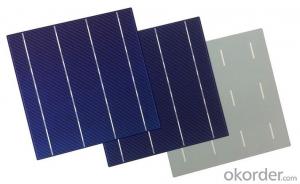Embarking on a full-time RV journey is an exhilarating experience, offering the freedom to explore the vast landscapes and hidden gems of our world. However, with this nomadic lifestyle comes the need for reliable, sustainable power sources. Solar panels for RVs have emerged as a popular choice for travelers seeking to harness the sun’s energy and maintain their independence from traditional power grids. In this guide, we’ll explore the ins and outs of solar power for RVs, providing you with the ultimate knowledge to make an informed decision for your full-time travel needs.
Why Choose Solar Panels for Your RV?
The decision to go solar is more than just an environmental choice; it’s a practical one. Solar panels offer several benefits that make them an ideal companion for full-time travelers:
– Efficiency: Solar panels are highly efficient at converting sunlight into usable energy.
– Reliability: With proper maintenance, solar panels can last for decades, providing a long-term power solution.
– Sustainability: Harnessing renewable energy reduces your carbon footprint and reliance on fossil fuels.
– Cost-Effectiveness: Over time, solar panels can save you money on fuel and power costs, especially when boondockers are your primary mode of travel.
Understanding the Basics of Solar Power Systems
Before diving into the specifics of solar panels for RVs, it’s essential to understand the basic components of a solar power system:
– Solar Panels: These are the heart of the system, capturing sunlight and converting it into electricity.
– Charge Controller: This device regulates the voltage and current coming from the solar panels to the battery, ensuring safe and efficient charging.
– Battery Bank: Stores the electricity generated by the solar panels for use when the sun isn’t shining.
– Inverter: Converts the DC power stored in the batteries into AC power, which is what most RV appliances require.
Sizing Your Solar System
Sizing your solar system is crucial to ensure it meets your energy needs without being unnecessarily large or costly. Consider the following factors:
– Daily Power Consumption: Estimate how much power you’ll use each day.
– Sunlight Availability: Consider the regions you’ll be traveling through and the average sunlight hours.
– Battery Capacity: Determine the size and type of battery bank that will store your solar power.
– System Redundancy: Plan for additional capacity to account for unexpected power needs or less-than-ideal solar conditions.
Choosing the Right Solar Panels for Your RV
With a variety of solar panels on the market, choosing the right ones can be daunting. Here are some factors to consider:
– Monocrystalline vs. Polycrystalline: Monocrystalline panels are more efficient but typically more expensive, while polycrystalline panels offer a balance of cost and efficiency.
– Flexibility: Flexible solar panels can be a good option for RVs with curved surfaces or limited space.
– Weight: Keep in mind the weight of the panels, as it will affect your RV’s payload.
– Durability: Look for panels with a sturdy construction that can withstand the rigors of travel.
Installation Considerations
Proper installation is key to getting the most out of your solar panels. Here are some tips:
– Placement: Install panels in a location that receives the most sunlight throughout the day.
– Angle: Tilt panels to optimize sunlight exposure based on your travel route and the seasons.
– Shading: Ensure there’s no shading from trees, structures, or even your RV itself.
– Wiring: Use high-quality wiring and connectors to minimize power loss and ensure safety.
Maintenance and Troubleshooting
To keep your solar system running smoothly, regular maintenance is necessary:
– Cleaning: Keep panels clean to maximize sunlight absorption.
– Inspection: Regularly check for any damage or wear that could affect performance.
– Battery Care: Follow the manufacturer’s guidelines for battery maintenance to prolong its life.
– Troubleshooting: Be prepared to diagnose and fix common issues like wiring problems or faulty components.
Going Off-Grid with Solar Power
Living off-grid with solar power is a dream for many full-time RVers. Here’s how you can make it a reality:
– Energy Conservation: Be mindful of your energy usage and invest in energy-efficient appliances.
– Solar-Friendly RV: Consider an RV designed with solar power in mind, with features like additional battery storage and solar-ready roofs.
– Community: Connect with other solar-powered RVers for tips, support, and camaraderie.
– Backup Power: Have a backup power source, like a generator or additional batteries, for extended periods without sunlight.
The Future of Solar Power for RVs
As technology advances, the future of solar power for RVs looks bright. We can expect to see:
– Higher Efficiency Panels: Improvements in solar cell technology will lead to even more efficient panels.
– Lighter and More Flexible Materials: New materials will make solar panels lighter and more adaptable to different RV surfaces.
– Smart Integration: Solar systems will become more integrated with RV systems, allowing for smarter energy management.
– Cost Reductions: As demand grows, we can expect costs to decrease, making solar power more accessible to all RVers.
Conclusion
Solar panels for RVs are a game-changer for full-time travelers, offering a sustainable, reliable, and cost-effective power solution. By understanding the basics, sizing your system appropriately, choosing the right panels, and maintaining your system, you can enjoy the freedom of the open road without worrying about where your next power source will come from. As you set off on your adventures, let the sun be your guide and your power source. Safe travels, and may your solar panels always be shining bright!

